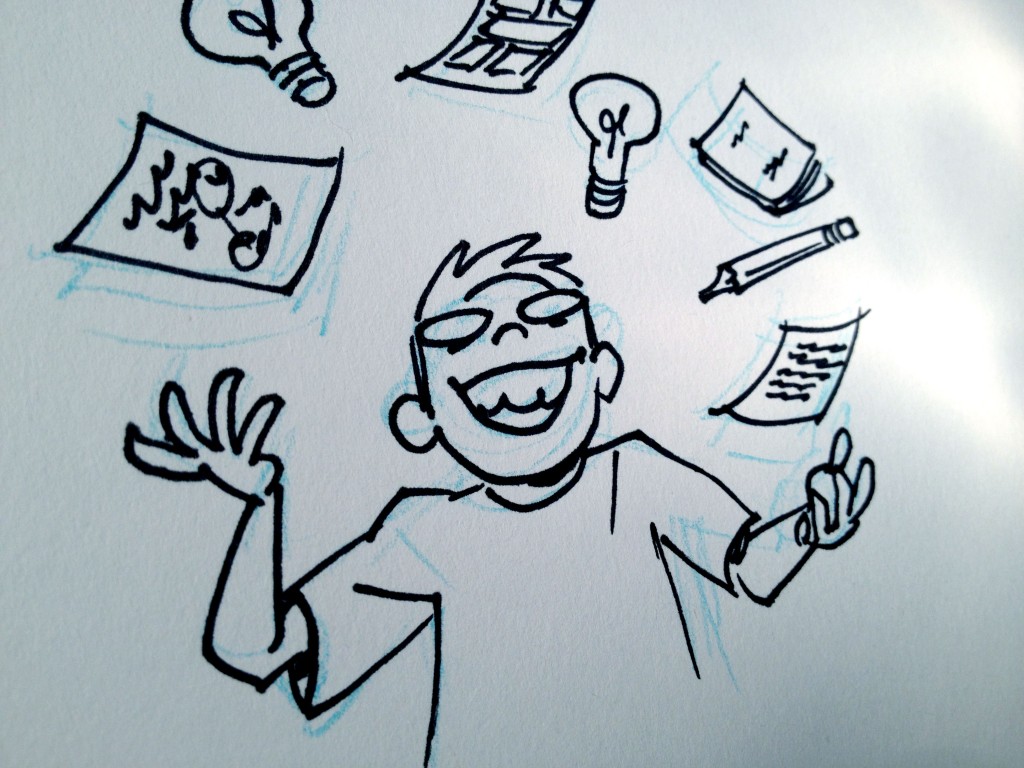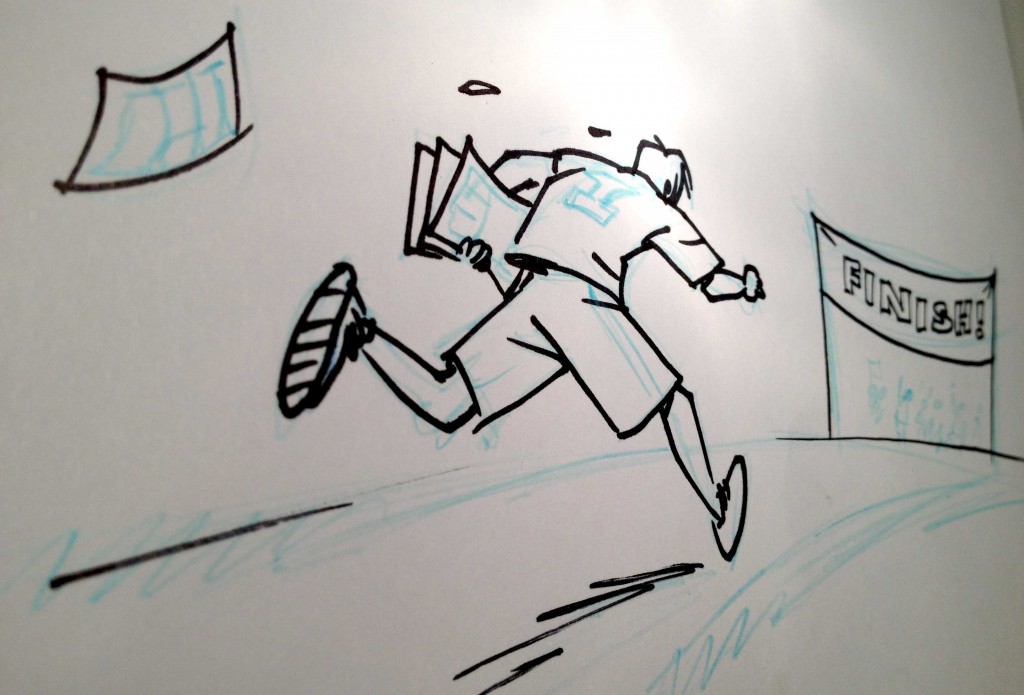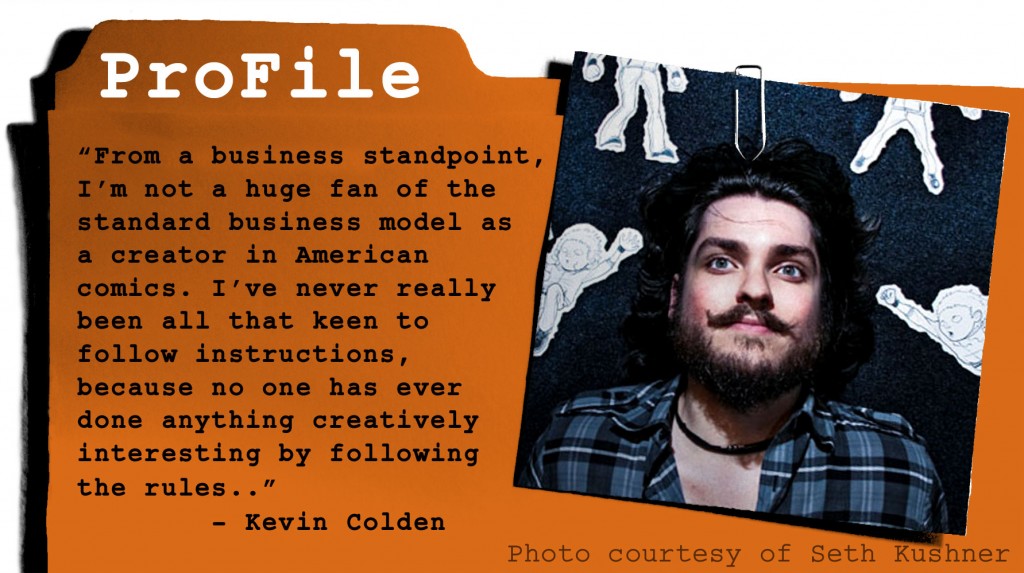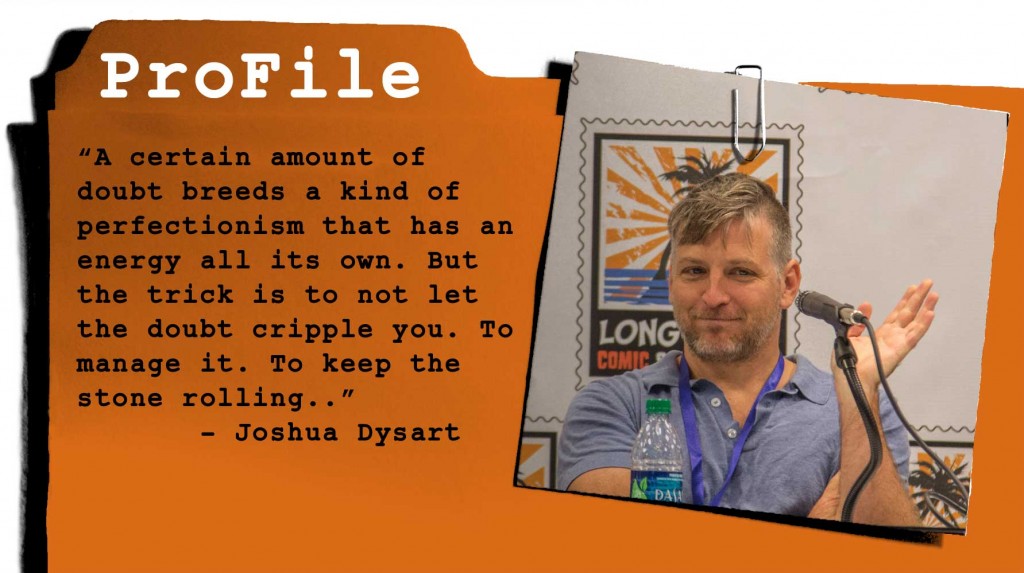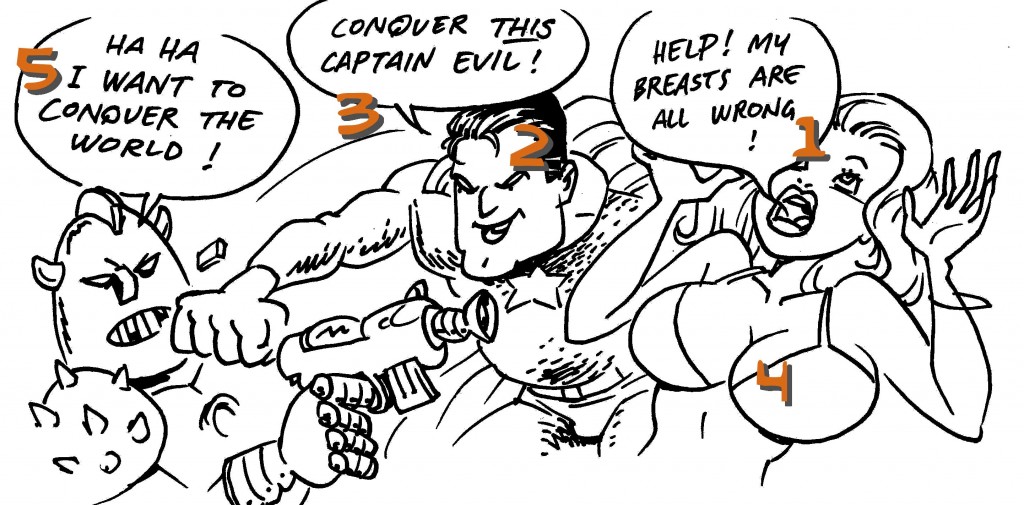
Comics is a wonderfully diverse medium and there is no one right way of doing it. But I have a few things I find just plain wrong!
1: Word balloons that come directly out of people’s mouths.
I’ve noticed this a lot in independent comics. It looks like someone is blowing smoke or bubble gum, and that really ruins the reading experience for me.
2: That hair.
A couple of loose strands of hair is generally a good idea. But for the slicked back hair to stay slicked, it’s probably a lot longer than the lock in front here. Did the hairstylist make a blunder? What? It doesn’t make sense. Yet I see this hair in A LOT of comics.
3: Talking during a fight.
Come on, really? I’ve never been in a fight, but I’m pretty sure I would be focused on not getting killed rather than what my next snappy comeback line would be. Long and clever dialogue during a fight scene is unbeliavable and takes the danger out of the scene.
4: Balloon shaped breasts.
How many women do you know who have breast that are completely circular? Not only is it anatomically incorrect, is also gives me the impression the artist is a 12-year old boy who is afraid to even Google for reference. I’m SURE there are pictures of real breasts out there.
5: Evil, evil, evil-doers.
I happen to believe people do things for a reason. Going up against the law or a team of superheroes takes a lot of nerve and effort. I don’t believe anybody would risk their lives doing evil, unless they had a clear motive – however faulty and twisted that motive may be! – or no other option. At least try to come of with a reasoning behind the bad guy’s evil plans to take over the world.
But hey, these are just my personal pet peeves. What are yours?
